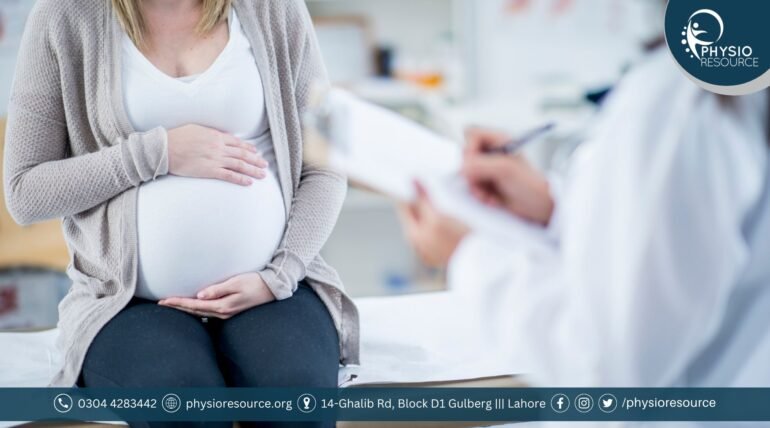
A Cornerstone for Maternal and Fetal Health
Pregnancy is a crucial period requiring optimal nutrition to support both maternal well-being and fetal development. The physiological and metabolic demands significantly increase during gestation, necessitating an adequate intake of macronutrients and micronutrients. Poor maternal nutrition can have detrimental effects on both mother and child, increasing the risk of complications such as intrauterine growth restriction (IUGR), low birth weight, neural tube defects (NTDs), and preterm birth.
The Importance of Maternal Nutrition During Pregnancy
Proper maternal nutrition ensures the optimal growth and development of the fetus, reduces the risk of pregnancy-related complications, and supports maternal health post-delivery. Nutritional requirements evolve throughout the three trimesters to meet the dynamic needs of the developing fetus and the mother’s changing physiology.
- First Trimester: This stage is critical for organogenesis. Adequate folic acid intake (400- 600 mcg daily) is essential to prevent neural tube defects such as spina bifida and anencephaly. Vitamin B12 and iron also play a pivotal role in early fetal neurodevelopment and hemoglobin synthesis.
- Second Trimester: The fetus experiences rapid growth, requiring increased energy, protein, calcium, and omega-3 fatty acids. Calcium (1000-1300 mg daily) is essential for fetal bone mineralization, while omega-3 fatty acids, particularly docosahexaenoic acid (DHA), support brain and retinal development.
- Third Trimester: This stage necessitates higher iron intake (27 mg daily) to support fetal erythropoiesis and prevent maternal anemia. Protein requirements rise to about 1.1 g/kg/day to sustain fetal growth and maternal tissue expansion.
Related post: Nutrition During Lactation
Essential Nutrients for Pregnancy
- Folic Acid: Reduces the risk of neural tube defects and supports DNA synthesis.
- Iron: Essential for hemoglobin production and fetal oxygenation.
- Calcium & Vitamin D: Necessary for fetal skeletal development and maternal bone health.
- Protein: Supports fetal tissue growth and maternal physiological adaptations.
- Omega-3 Fatty Acids (DHA & EPA): Promote brain and visual development.
- Vitamin A: Crucial for cellular differentiation and immune function (excessive intake should be avoided due to teratogenic risks).
- Iodine: Supports fetal thyroid function and neurological development.
Effects of Maternal Malnutrition on Fetal Health
Maternal malnutrition, whether due to undernutrition or excessive caloric intake, can significantly impact fetal development. Insufficient nutrition may result in:
- Intrauterine Growth Restriction (IUGR): Leading to low birth weight and increased neonatal morbidity.
- Neural Tube Defects (NTDs): Due to folic acid deficiency.
- Congenital Anomalies: Resulting from vitamin A or iodine deficiency.
- Preterm Birth: Due to inadequate maternal micronutrient status.
- Gestational Diabetes and Macrosomia: Resulting from excessive weight gain and poor glycemic control.
Dietary Recommendations for Pregnant Women
A balanced diet incorporating diverse food groups is fundamental for meeting nutritional needs during pregnancy. Key dietary recommendations include:
- Consume Whole Foods: Prioritize whole grains, lean proteins, healthy fats, and fresh fruits and vegetables.
- Increase Caloric Intake Gradually: Additional 340 kcal/day in the second trimester and 450 kcal/day in the third trimester.
- Ensure Adequate Hydration: At least 2-3 liters of water daily to support increased blood volume and amniotic fluid production.
- Limit Processed Foods and Sugars: To prevent excessive weight gain and gestational diabetes.
- Take Prenatal Supplements: As recommended by healthcare professionals, particularly for folic acid, iron, calcium, and DHA.
Conclusion
Optimal maternal nutrition is paramount for ensuring a healthy pregnancy, reducing the risk of maternal complications, and promoting favorable fetal outcomes. Healthcare professionals, including dietitians and physiotherapists, should work collaboratively to guide expectant mothers on appropriate dietary choices, lifestyle modifications, and supplementation strategies. A well-balanced prenatal diet supports fetal development, reduces the risk of birth defects, and enhances maternal postpartum recovery, ultimately contributing to long-term health benefits for both mother and child.
For expert guidance on maternal health and nutrition, visit Physio Resource for evidence-based recommendations and professional consultations.
Physio Resource
Phone No: 0304-4283442
Address: 14-Ghalib Rd, Block D1, Gullberg III, Lahore


